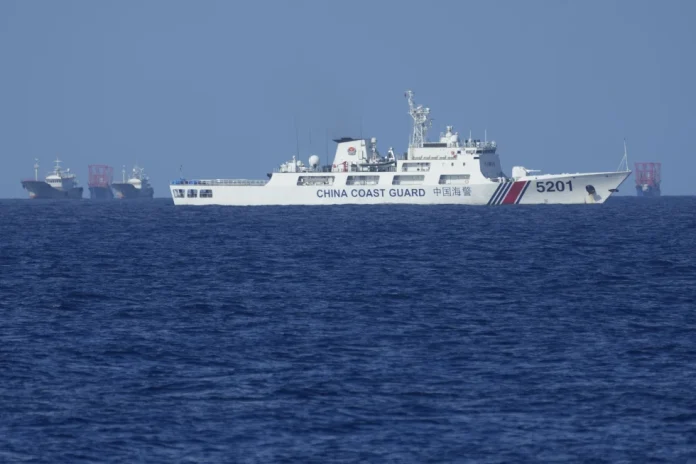The Asia-Pacific region kicked off a raft of military exercises on Wednesday amid maritime tensions.
Indonesia, Australia in joint drills after “historic” defence pact
More than 2,000 Indonesian and Australian troops held a joint military exercise on Wednesday after the allies signed a new defence agreement pledging closer co-operation to combat security threats in the Asia-Pacific region.
The two countries are seeking to strengthen security ties amid heightened tensions in the region, including the South China Sea, where several nations claim sovereignty over disputed islands and waterways.
The four-day exercise, called Keris Woomera on the main Indonesian island of Java, includes air, land, sea and cyber exercises, which Australian Defence Minister Richard Marles called “the largest exercise Australia will conduct outside of its home country this year.”
On Wednesday, the two forces conducted an amphibious landing on a beach on the eastern Java island, the Australian Embassy in Jakarta said in a statement.
The live-fire exercise involved tanks, ships, fighter jets, landing craft, attack helicopters and about 2,000 troops, the statement said.
Indonesian President Prabowo Subianto called the new security agreement signed in August a “historic milestone” in relations between the two countries. It includes provisions for joint exercises and troop deployments in each country.
China holds joint drills amid escalating maritime tensions with the Philippines
China on Wednesday held joint military drills amid escalating maritime disputes with the Philippines, state media reported.
The People’s Liberation Army’s (PLA) Southern Theatre Command conducted naval and air patrols around Scarborough Shoal, known as Huangyan Island in China and Panatag Shoal in the Philippines. The PLA said:
This is a regular lawful patrol and alert activity.
Both Beijing and Manila claim sovereignty over Scarborough Shoal.
The latest drills come after Philippine President Ferdinand Marcos Jr. last Friday signed into law the Philippine Maritime Zones Act and the Philippine Archipelagic Sea Lanes Act targeting the disputed South China Sea. Manila calls part of the vast body of water the West Philippine Sea.
Beijing has protested, summoned the Philippine ambassador and dismissed the laws as a “violation” of China’s territorial sovereignty.
Manila argues the laws are aimed at strengthening Manila’s rights and responsibilities in its maritime zones, which it calls the West Philippine Sea. The Philippines and China have overlapping claims to the warm waters of this resource-rich vast body of water.
